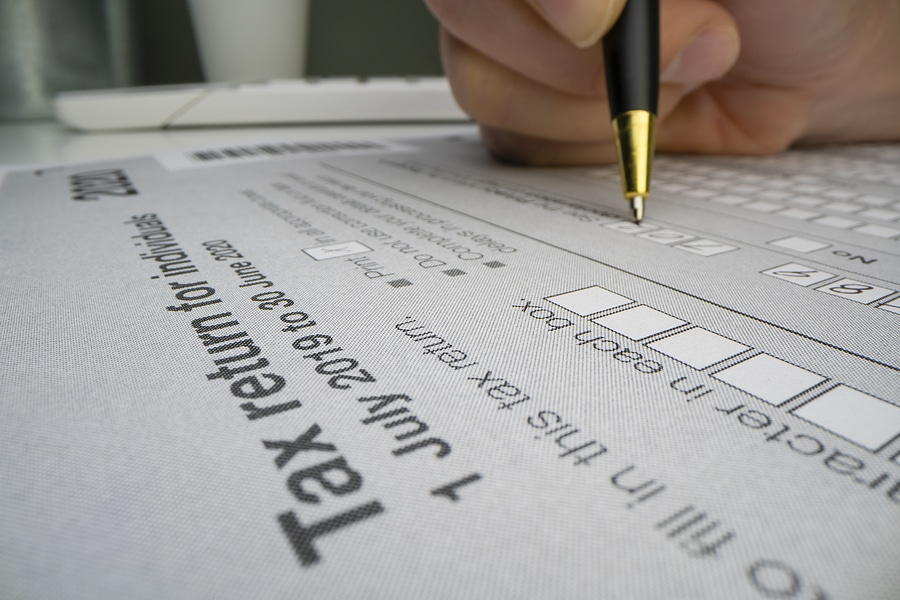
What might happen if you don’t file your tax return on time
October isn’t the only due date you’ll need to keep in mind when it comes to your tax return – if you run a business, their business tax return is actually due at the end of February, a full 4 months after your personal one.
As of the time of writing, that date’s only a little bit over a week away – if your business hasn’t filed yours yet, we suggest getting on with it!
Of course, the due date isn’t the only thing that makes business tax returns different from personal ones – since business finances are typically much more sophisticated than individual ones, it stands to reason that their tax returns are also more complicated.
Need help with your business tax return in Melbourne? Our business tax accountants are here to help!
Your most frequently-asked questions about business tax returns, answered
The ATO is extremely clear on the topic of business tax returns: if you run a business, you need to file a tax return, regardless of whether or not you made a profit or loss over the last year.
Of course, business tax returns are a lot more complicated than that – depending on your business and its circumstances, the type of return you file, as well as the information you include in it can change.
There are a lot of questions surrounding business tax returns – luckily, our team is here to help out by providing answers.
What happens if I don’t submit a tax return?
First off, your business may be hit with a fine if it doesn’t file a tax return in time – a fine that escalates the longer you go without paying (don’t worry, we’ll touch on that in a bit).
Additionally, the ATO also has a range of other mechanisms that they can use to go after businesses that haven’t lodged on time.
Luckily for you, just because the ATO has these tools doesn’t mean that they’ll use them. Generally, the ATO is relatively forgiving in situations like this – these penalties are generally reserved for cases where you have:
- More than one tax return outstanding
- A poor lodgement history
- Failed to comply with requests in the past
Instead, most small and medium businesses are treated with understanding – they’d much prefer to get what they’re owed instead of having to prosecute a lengthy case. Often, the ATO is willing to sit down with you, drafting up a way to get back on top of your tax situation.
What if I haven’t filed taxes in 5 years or more?
Generally, penalties such as fines, default assessments and criminal prosecution are only reserved for the exceptional cases.
Situations such as businesses that haven’t filed taxes in 5 years or more.
As we mentioned above, in these cases, the ATO may even decide to issue a default assessment for overdue payments. Essentially, in the event that a business fails to lodge a return, the ATO will perform its own assessment of tax owed.
Not only does failure to repay by the assigned date increase your penalty further, but there’s also the risk of being handed an assessment that’s worse than what you should be paying.
While the ATO has a wealth of information to draw from, there’s no guarantee they’ll get it 100% correct – you may end up missing out on many of the benefits and exemptions you usually qualify.
All the more reason to avoid a default assessment by lodging on time.
And in extreme circumstances, you may even be prosecuted, resulting in an even bigger fine and possibly even imprisonment!
More than just fines: what else can happen if you don’t don’t submit a tax return
Most business owners (naturally) worry about the penalties they may face if they don’t lodge on time.
What many forget is that there are other consequences to failing to lodge on time!
In addition to the risk of incurring penalties, there’s also the prospect of your business missing out on a range of financial benefits.
The Australian Tax Office offers a range of tax deductions, allowances and other incentives – all of which depend on filing an accurate and timely business tax return.
Fail to get your tax return in on time, and you might miss out on these financial benefits!
It’s compulsory to file a tax return in Australia – but how does your type of business entity change things?
As we mentioned before, all businesses need to file a tax return.
Depending on the type of business however, the exact process as well as the information you’ll need to include can change.
For instance, did you know that for businesses operated as trusts:
- … tax returns will need to be lodged by the trustee?
- … individual beneficiaries will need to lodge their own individual company or individual tax returns?
That’s just one example of how the way your business is structured and managed can affect your business tax return.
Unsure whether you’re doing things right? Our tax accountants in Melbourne are experts in all things tax-related, and can help you figure out if you’re filing your business tax returns correctly.
How long can you go without filing a tax return?
Failing to file a personal tax return can have consequences, including ever-increasing fines the longer you go without lodging.
Businesses are no different, with a range of different penalties…
- Small entities: one penalty unit for each 28-day period, up to a maximum of 5 penalty units
- Entities with assessable income or GST turnover between $1 million and $20 million will pay 2 penalty units every 28 days
- Entities larger than $20 million will pay 5 penalty units for every 28 day period
- Multinational organisations will pay 500 penalty units for every missed period
The longer you go without filing a tax return, the higher the penalty – all the more reason to file your business tax return as quickly as you possibly can.
Can I file 2 years of taxes at once? How can I file past years taxes?
As a general rule, the best piece of advice we can offer is to file your business tax return on time.
Sometimes however, you might find yourself having to skip a year.
Whether it’s because you’ve requested a remission or simply because you missed a past one, just like with your personal tax return, you can go back to a previous year and fill in a tax return that you missed.
Of course, one thing that complicates this is holding onto all the documentation and receipts you’ll need to fill out a historical tax return – while much of it will be automatically recorded, not all of it will.
Need help? Our tax return accountants in Melbourne can help you get things in order!
Running a business can be complex – with the right team supporting you however, at least you won’t need to worry about your business tax returns causing you strife
If you thought it was important to get your personal tax return in order, you haven’t seen anything yet!
Business finances can be extremely complex – luckily, it isn’t something you need to face on your own.
When it comes to business tax in Melbourne, our accounting team is the one to call. Specialising in both personal and business tax affairs, we can do more than just help you get your tax returns in order:
- Providing financial advice
- Helping you plan for the future
- Organising your business’ finances
Since 1966, our accounting firm in Melbourne has been helping both small and medium businesses alike from all sectors and industries. Whether it’s taxation in Black Rock or BAS/IAS in Brighton, just tell us what you need – odds are, we’ve done it before!
Find out how we can help you grow – call our team on (03) 9589 5488, or click here to get in touch online.























